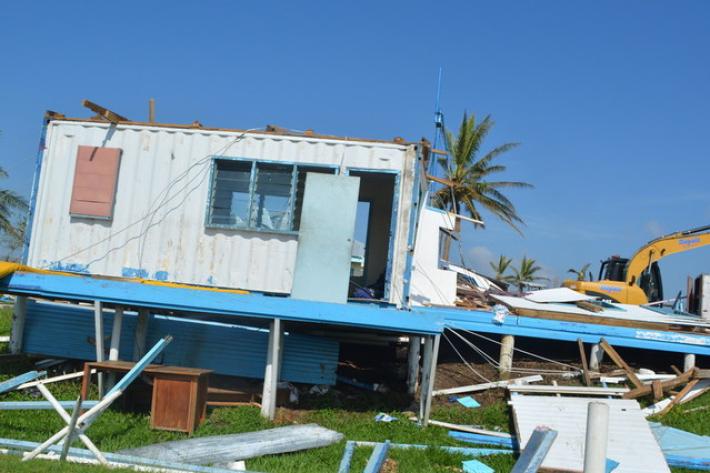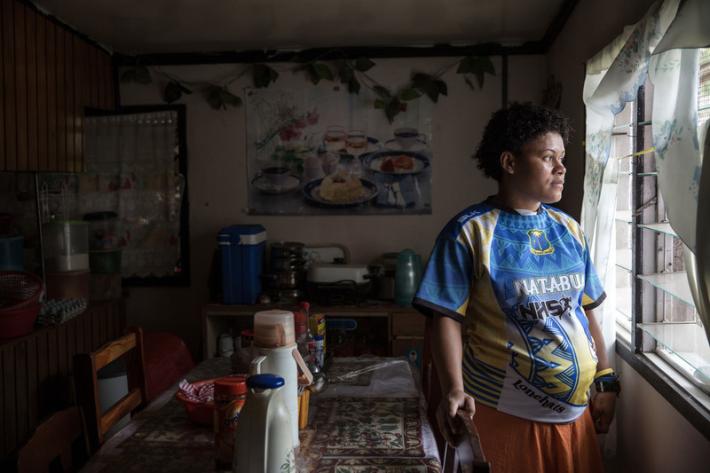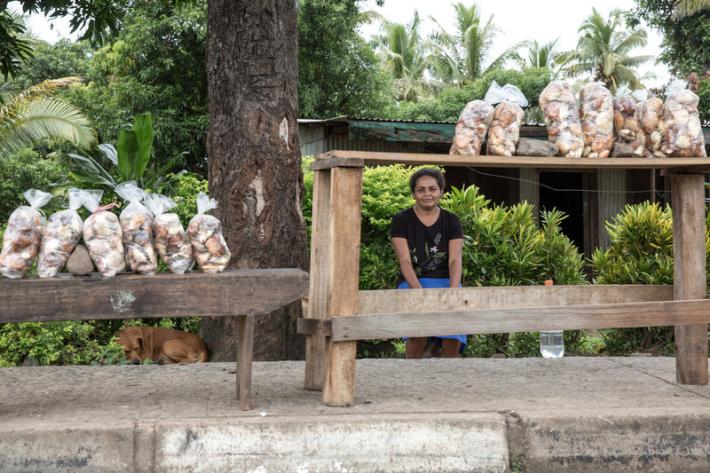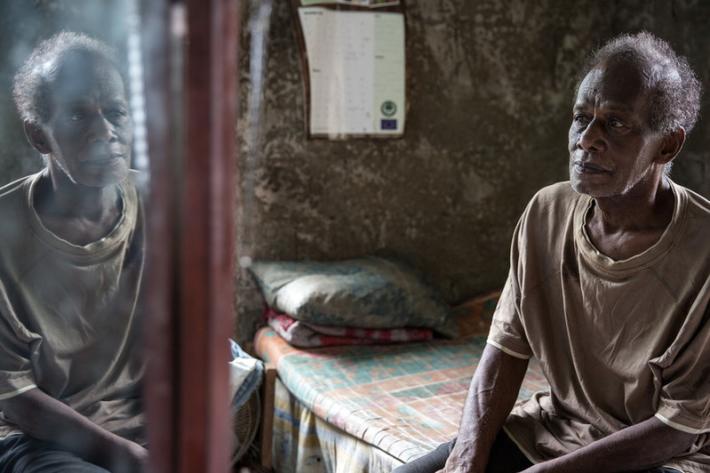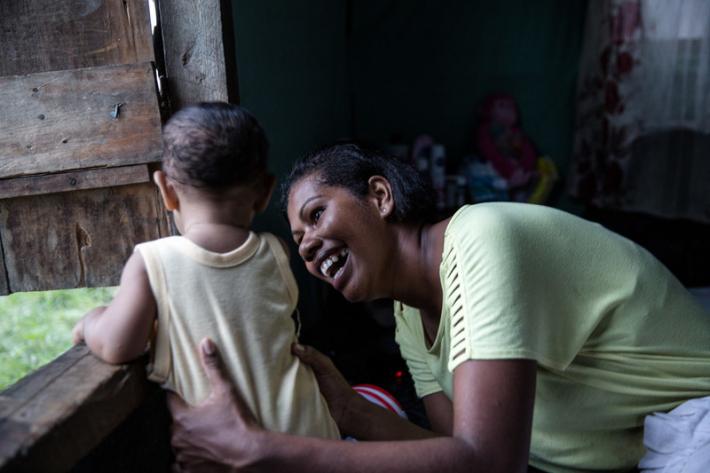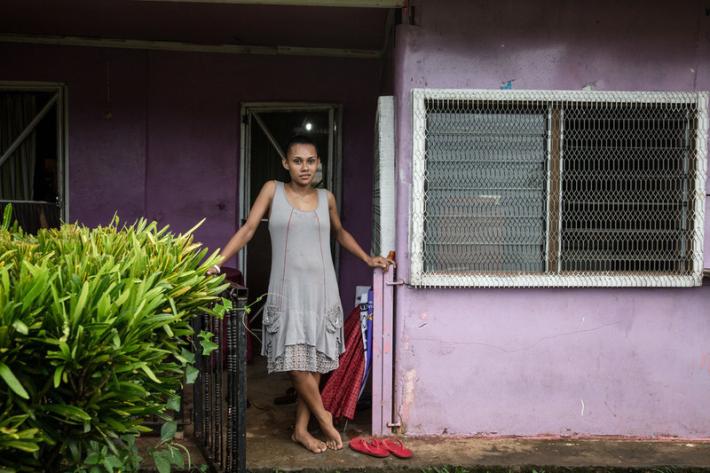Cyclone Winston that devastated Fiji was the strongest to ever hit the South Pacific. IPPF’s humanitarian response there is part of our SPRINT Initiative, funded by the Australian Government’s Department of Foreign Affairs and Trade.
In 2016, the highest grade cyclone to ever hit the South Pacific devastated Fiji, affecting 40% of the population.
IPPF was among the first on the ground providing critical life-saving services: sexual and reproductive health provisions, which are often neglected when disaster strikes. In the wake of a crisis, sexual violence often escalates, leaving women and young people vulnerable to STIs and unwanted pregnancy.
It is estimated that approximately 20% of women are pregnant at any given time during an humanitarian crisis, and with the help of our local Member Associations on the ground, we prioritize services to women and young girls, especially those who are pregnant and lactating, as well as new mothers.
Xerxes Arcenal was part of the team which traveled to Viti Levu, the remote Fijian villages affected by the cyclone, to deliver much-needed medical attention and supplies. During their travels, he saw all the health facilities down and the schools down. "The young people will have nothing to do. This is a special concern for NGOs, as it is a critical time in the lives of adolescents, and it is not ideal for them to be left idle for a long time."
Our local IPPF Member Association, the Reproductive and Family Health Association of Fiji, was instrumental in connecting with the local communities. This was important because cultural restrictions make it hard to discuss issues of sex within Fijian communities, which is a barrier to delivering sexual health issues.
Xexes also stresses that sexual and reproductive health should not be considered an optional extra when it comes to any NGO mounting a response to a humanitarian disaster. Girls continue to menstruate, women continue to give birth, couples continue to have sex in the confused and chaotic weeks and months after a natural disaster. There will be cases of sexual violence, particularly when situations are stressful or people are forced to live in makeshift shared shelters. Unprotected sex will result in unplanned pregnancies, and children born in chaotic circumstances may fall behind on their development markers.
“If you talk to the government they will say, we don’t need to respond to reproductive health right now, it’s not life threatening. So you initially get resistance from partners, from government, and you have to work around that, constantly engage them in discussion, show them proof of what happens.”
At the same time, he identified the main challenge as squaring the gap between expectation and reality: the expectations of funders that a successful humanitarian aid mission should be based on numbers to whom services were delivered to, rather than the reality on the ground, where there might not be mass numbers who need attention, but rather, difficult circumstances that need to be overcome in order to deliver aid.
“As it is in every disaster, it will relate to funds. No matter the road conditions, if you have enough resources you will be able to overcome it. The geo-economic situation of Fiji and other countries in the Pacific makes prices, cost of services and commodities very high. Add disaster to that, it will be ten times normal,” say Xerxes.
“As it was, we would need our own vehicles [to effeciently deliver aid]. In Rakiraki we would love to serve one of the villages but you need a chopper to be able to reach the area. So these things are very challenging.”
For Tarai Nakolinivalu, IPPF's Humanitarian response leader and former midwife, the Cyclone Winston response provided invaluable learning on how best to deal with the aftermath of natural disasters in Fiji.
Tarai was part of the IPPF team that was involved in distributing aid to affected communities
“Some of the roads were washed away, even bridges, so it was hard to drive,” says Tarai. The team travelled to villages to find sometimes great damage: trees uprooted, houses destroyed, sometimes more than 100 people living together in the community hall.
One of the biggest challenges is that Given the strained circumstances, the team sometimes had to forego some Fijian customs, like the traditional kava ceremony which is undertaken by the village to show outsiders they are welcome.
“The learning is to always be prepared because we never know. Because of climate change, natural disasters are here to stay now. We can’t be complacent here in Fiji.”
Stories
Read more stories about our work in Fiji after the Cyclone Winston
when
country
Fiji
Blog Series
Emergency Rescue
Subject
Emergencies
Related Member Association
Reproductive & Family Health Association of Fiji








